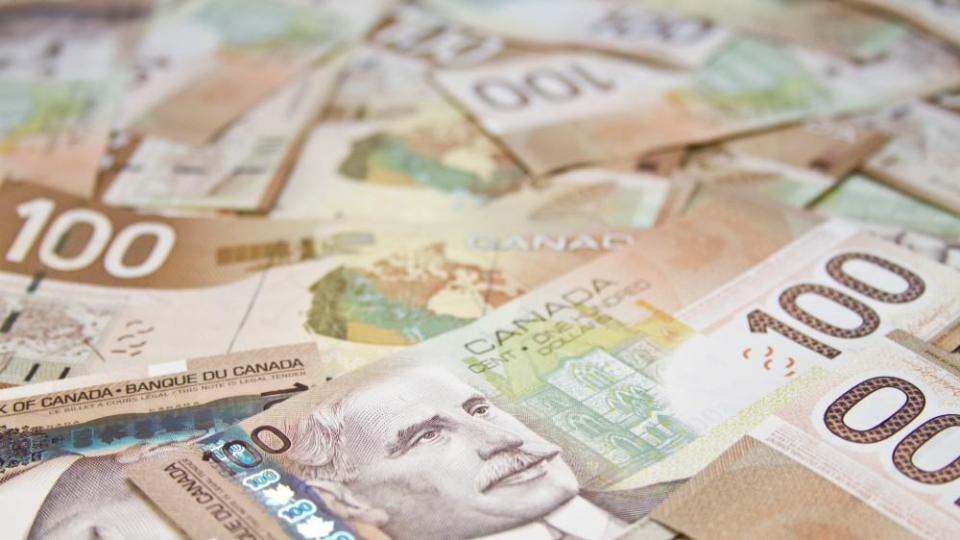The 2020 Market Crash Has Created an Opportunity to Build Wealth

The coronavirus pandemic has triggered the worst market crash since the 2008 Great Recession. Fears of a deep recession coupled with rising U.S. cases is sending jitters around the globe. Despite central banks cutting interest rates and announcing fiscal stimulus measures, stocks are expected to drift lower.
Over the last month financial markets have been in turmoil because of the rapid spread of the coronavirus. The Dow Jones Industrial Average has shed 11% since the start of March, while the S&P/TSX Composite Index is down 20%.
Rising volatility
The CBOE Volatility Index, known as the VIX, recently spiked to levels not witnessed since the 2008 Great Recession. Fears of a deep global economic down, which could be worse than 2008, have erased the gains made by the TSX since 2016, triggering disbelief among investors as years of gains after one of the longest bull markets ever have evaporated overnight.
The likelihood of a deep prolonged global recession has seen central banks around the world implement measures to stem economic fallout from the coronavirus pandemic. These include interest rate cuts and fiscal stimulus packages. The Trump administration announced a US$2 trillion stimulus package, which buoyed markets, but may be too little, too late.
Poor outlook
There appears to be worse ahead for stocks because the coronavirus pandemic has yet to peak. Stricter measures will control movement and prevent the spread of the virus. According to some market pundits, stocks will fall another 10% or more before the bottom is officially reached.
The travel and entertainment sectors will suffer the most hardship because of the pandemic. Government travel and social distancing restrictions have closed all but essential industries to contain the coronavirus. Airlines have grounded large parts of their fleets and many entertainment venues such as cinemas, restaurants and shopping malls have closed. Hotels are suffering because of a dearth of customers as domestic and international tourism dries up.
The rapid spread of the virus in the U.S. means that sadly there will be more cases and deaths. The mounting numbers will fan fears for an already very nervous Wall Street. Poor 2020 earnings is also weighing on stocks.
Analysts are tipping that earnings across the broader market will fall on average by around 10%, while airlines, hotels and entertainment businesses are expected to take a 20% to 30% earnings hit.
Stocks to buy
The gloomy outlook for the economy generally shouldn’t deter you from buying quality dividend paying stocks with wide economic moats and solid balance sheets. Canada’s banks are attractively valued and possess solid fundamentals meaning they will emerge from the current crisis in solid shape.
One which stands out is Royal Bank of Canada (TSX:RY)(NYSE:RY). It is Canada’s biggest lender and the 23rd largest global bank, seeing it rated as a systemically important institution that is “too big to fail.”
Royal Bank operates in a heavily regulated oligopolistic industry possessing steep barriers to entry, thereby protecting the bank from competition and reinforces its wide moat, further guaranteeing its earnings. Royal Bank finished its fiscal first quarter 2020 in solid shape.
It had a low gross impaired loans ratio of 0.45% and a solid common equity tier one capital ratio of 12%. That, along with total assets growing by 8% year over year for the first quarter underscores Royal Bank’s financial strength.
Royal Bank’s diversified earnings that sees 62% of revenue generated in Canada, 23% in the U.S., and the remaining 15% internationally reduces risk and bolsters its growth prospects.
Coupled with its high return on equity of 17.6% and low efficiency ratio of 49.7%, Royal Bank will deliver further value once the crisis ends.
Royal Bank is trading at nine times its forecast 2020 earnings and 1.5 times book value, indicating that it is attractively valued, making now the time to buy. While you wait for Royal Bank to rally, you will be rewarded by its sustainable dividend yielding a juicy 5%.
A $10,000 investment in Royal Bank 10 years ago would be worth $18,842 even after the latest decline for a total return of 88% or a compound annual growth rate of 6.5%.
Foolish takeaway
History shows that Canada’s big banks have consistently delivered strong returns. The latest market crash has created a once in a decade opportunity to buy Royal Bank at an appealing price and create long-term wealth.
The post The 2020 Market Crash Has Created an Opportunity to Build Wealth appeared first on The Motley Fool Canada.
More reading
CRA Delays Tax Deadline: Make Sure to Include These 2 Tax Deductions
Market Crash Alert: Royal Bank of Canada (TSX:RY) Stock Just Plunged 27%
Stock Market Crash 2020: Your Chance to Turn $50,000 Into $1 Million
Fool contributor Matt Smith has no position in any of the stocks mentioned.
The Motley Fool’s purpose is to help the world invest, better. Click here now for your free subscription to Take Stock, The Motley Fool Canada’s free investing newsletter. Packed with stock ideas and investing advice, it is essential reading for anyone looking to build and grow their wealth in the years ahead. Motley Fool Canada 2020

 Yahoo Finance
Yahoo Finance 